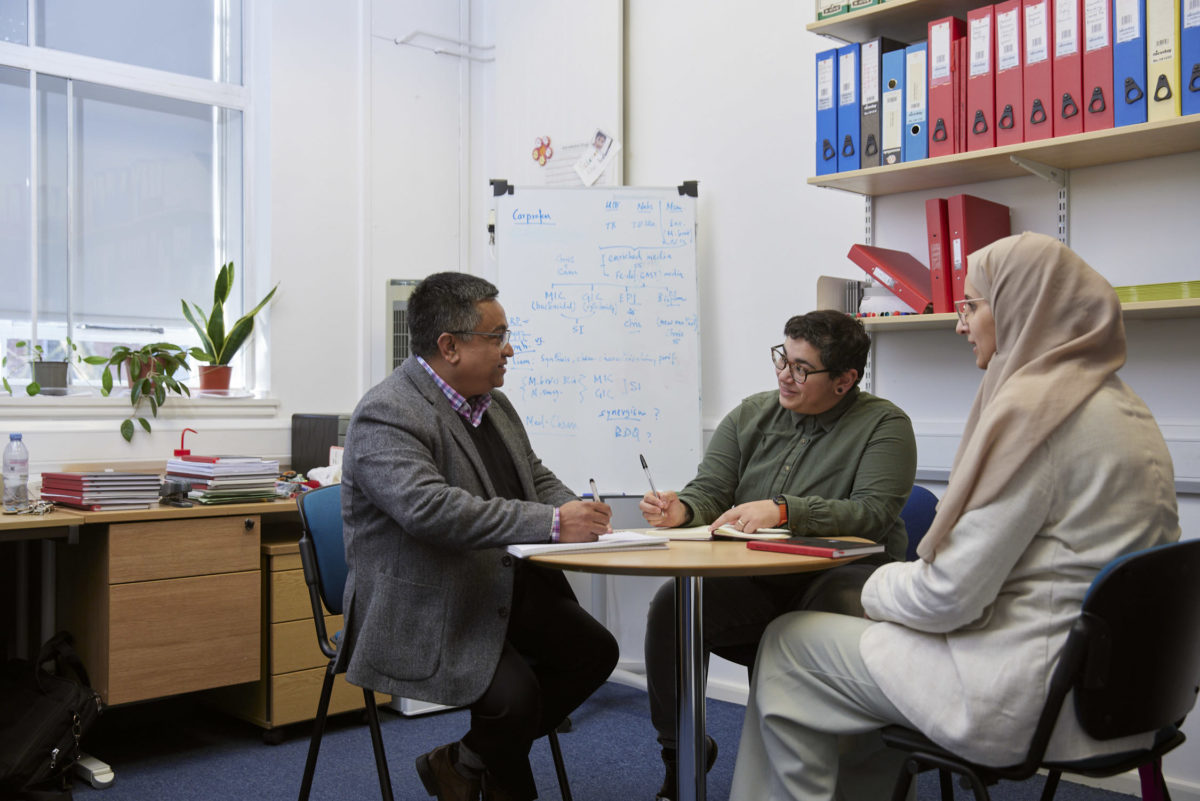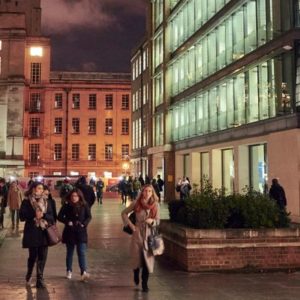Chris Daniel, researching for a biology PhD
Why Birkbeck?
I chose Birkbeck, University of London because it was one of the few places I could study a Master’s degree part-time; I joined in 2020 to study Microbiology (MSc) and in 2022 I was honoured to receive the Diversity100 scholarship.
I am working in Professor Sanjib Bhakta’s Mycobacteria Research Laboratory within the Institute of Structural and Molecular Biology (ISMB), and my project is part of the effort to tackle antimicrobial resistance in TB and TB-like respiratory diseases. Our research group originally discovered a nonsteroidal anti-inflammatory drug class (similar to ibuprofen) that kills the drug-resistant form of the TB-causing bacteria, and my doctoral research project aims to understand how that over-the-counter painkiller drug is killing the bacteria on a molecular level.
What is a typical PhD day?
So, I’ll take you through one of my days in the lab!
I start the day usually by going to the gym, I find it helpful to clear my head before the day and it gives me the chance to plan my work. After a quick cup of coffee in the office, I’ll plan my experiment by assessing what I learned from the last experiment and writing out an aim for the next one. For example, I might have learned that I need to optimise my cell number for an experiment, so I’ll draw out my experiment using a multi-well plate map I designed, then prepare the chemicals I need.
Everything needs to be sterile (otherwise you risk running an experiment with bacteria that isn’t the one you want to use!) so to avoid contamination, we autoclave the chemicals and media that we use. The autoclave is basically a high-pressure cooker that kills everything before you use it. Once everything is clean, I set up my experiment in a sterile air-flow hood to keep everything in a safe atmosphere and a high level of protection for aseptic preparations. I clean everything down with ethanol when I’m finished so it’s ready for the next person to use.
I usually combine my microbiology lab work and molecular biology experiments since culturing mycobacteria can take some time. Whilst I’m waiting for my results, I write everything up in my online lab notebook including my aims, observations, changes I’ve made, how old my bacteria was, and any other relevant information. Birkbeck graduate research school (BGRS) creates an amazing doctoral training environment where I get the opportunity to meet my thesis committee and my graduate tutor regularly.
When I’m not in the lab, I’m researching specific areas of my topic to build up further knowledge. This means keeping up to date with current research and critically analysing published papers and methods. I am usually crunching a lot of data too! I also prepare presentations for conferences, assist with teaching the undergraduate and postgraduate labs as well co-supervise project students in our lab.
And that’s my typical day!
This scholarship has changed my life, it has given me the opportunity to be a scientist. Of all the wonderful, complex elements that make us who we are, this PhD makes me feel fulfilled, capable and excited.



